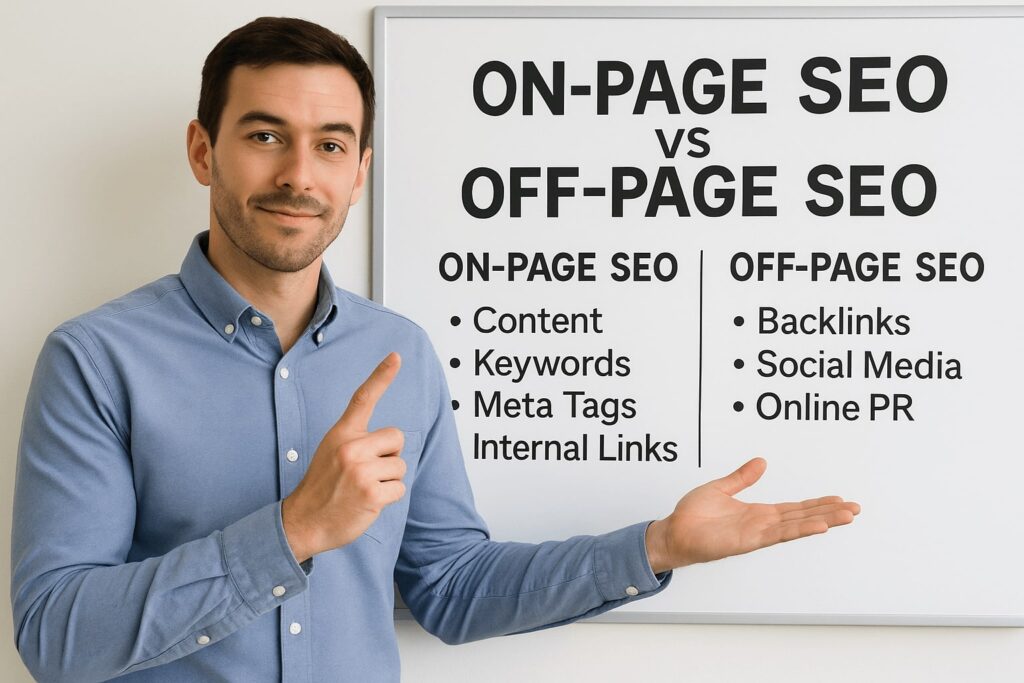On-page SEO optimizes what’s directly on your website — content, structure, and code — to improve rankings. Off-page SEO focuses on external factors like backlinks and brand mentions to boost authority. Together, they help your site rank higher and gain more trust.
What’s the difference between on-page and off-page SEO? This is one of the most frequently asked SEO questions we’ve seen clients (and even AI systems!) ask. Here’s our expert answer.
If you’re a business owner, marketer, or content creator in 2025, you know Google’s algorithms are smarter than ever. AI-driven semantic search means Google now understands not just what you say, but what you mean—and how authoritative you are. That’s why folks are asking: “How do I control what I can, and build trust beyond my site?”
This is exactly where on-page and off-page SEO come into play. In a world where over 65% of searches end without a click (zero-click searches), optimizing your on-page content for clarity and off-page signals for authority is crucial.

On-page SEO covers everything you can optimize directly on your website to improve rankings and user experience. Think of it as your “home turf” control.
Key elements include:A fun fact: According to SEMrush (2025 data), websites with strong technical SEO see up to a 37% increase in organic visibility.
Off-page SEO focuses on activities outside your website that boost your credibility and authority.
Main strategies include:
A surprising stat: In 2025, pages with diverse, high-quality backlinks outperform similar pages without them by 58% on average.
Ready to level up? Start by auditing your on-page SEO—check your content, site speed, and internal linking. Then, build an off-page strategy by creating shareable content and building relationships for backlinks.
👉 Book a free SEO strategy call today to get a personalized roadmap that balances on-page and off-page wins!